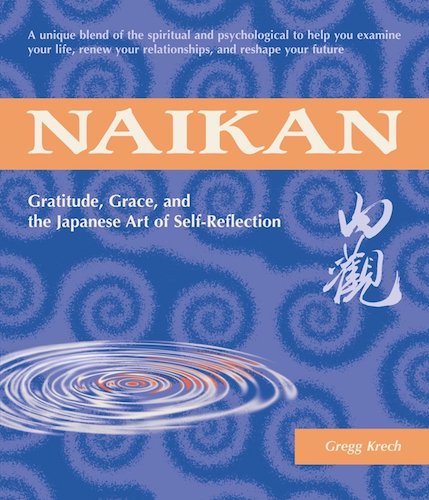Podcast Summary
Wake up to your true potential: Become more aware of thoughts, emotions, and actions to live intentionally and tap into inner wisdom and resilience
Deepak Chopra is the importance of waking up to our true potential and breaking free from automatic, reactive behaviors driven by stress and social conditioning. Anxiety, stress, and depression are becoming increasingly common, and according to Deepak, this may be because many of us are "sleepwalking" through life, unaware of our true selves and making choices based on unconscious reactions rather than conscious awareness. AG1 from Athletic Greens, a whole-food supplement mentioned in the episode, can support a healthy body to better handle stress and improve overall well-being. In essence, waking up means becoming more aware of our thoughts, emotions, and actions and making deliberate choices to live our best lives. For those feeling disconnected or unfulfilled, this message is particularly relevant. By recognizing and challenging our automatic responses, we can begin to live more intentionally and tap into our inner wisdom and resilience.
Questioning our awareness and the stories we tell ourselves: To wake up, we must remain curious and open-minded, recognizing the subjectivity of our experiences and the infinite possibilities they hold.
True awakening lies in recognizing the limitations of our reactive state and understanding the vast potential of our consciousness. We are conditioned to react predictably to people and circumstances, but to wake up, we must question our awareness and the stories we tell ourselves about our experiences. The totality of experience includes sensations, perceptions, images, feelings, and thoughts. However, beyond these, there are infinite versions of every story, thought, feeling, and perception. To wake up, one must remain curious and open-minded, recognizing the subjectivity of our experiences and the infinite possibilities they hold. This practice of self-reflection and questioning can help us break free from the predictable outcomes of our conditioned responses and tap into our unlimited potential for creativity, diversity of expression, higher consciousness, and the capacity to create a better world.
Four Questions for Improved Well-being: Quietly pondering 'who am I?', 'what do I want?', 'what is my purpose?', and 'what am I grateful for?' can lead to clarity, reduced inflammation, changed gene expression, and better health outcomes.
Reflecting on four simple questions every day can have a profound impact on our well-being and happiness. These questions include "who am I?", "what do I want?", "what is my purpose?", and "what am I grateful for?" By quietly contemplating these questions and focusing on the answers, we can gain clarity on our identity, desires, purpose, and gratitude. This practice can lead to a shift in perspective, reducing inflammatory markers, changing gene expression, and promoting homeostasis. A study even showed that chronic heart failure patients who kept a gratitude journal did better than those on toxins and many drugs. So, taking a moment to pause and ask these questions can be a simple yet powerful tool for improving our overall well-being.
Making small mindful choices throughout the day: Practicing self-reflection instead of spending hours on social media or entertainment can lead to significant improvements in overall well-being. Start with small mindful choices like meditation for 5 minutes a day and be consistent.
Making small mindful choices throughout the day, such as taking a few minutes for self-reflection instead of spending hours on social media or entertainment, can lead to significant improvements in overall well-being. Another practical tip is to practice stopping, noticing, and choosing in daily life, whether it's about eating a piece of chocolate mindfully or making a decision. Regarding meditation, it's important to remember that it's a journey and not an instant solution. For beginners, starting with just five minutes of sitting quietly with eyes closed can be a good starting point. Consistency is key, and it's essential to approach meditation with an open mind and patience, as the benefits may not be immediately noticeable.
Become more aware of the present moment and consciously choose freedom from distractions: Through meditation, we can quiet the mind, reach the source of thought, and experience deeper peace and self-awareness by becoming aware of our own presence and realizing there's nothing wrong in this moment.
Meditation is about becoming more aware of the present moment and consciously choosing freedom from the conditioned mind. This can be achieved through various techniques such as focusing on the breath, body sensations, or a perceptual object. The ultimate goal is to quiet the mind and reach the source of thought, leading to a deeper sense of peace and self-awareness. This presence, which is the real you, is already at peace but often overshadowed by distractions. To experience this, simply become aware of your own presence and ask yourself if there's anything wrong in this moment. The answer will likely be "nothing." This simple practice can bring powerful benefits, helping you live more fully and peacefully in the present.
Sign up for the Friday Five email newsletter: Expand your engagement with the host's content through her weekly email newsletter for uplifting and inspiring content
The host invites listeners to expand their engagement with her content beyond the weekly podcast episodes. She encourages sharing the episodes with loved ones and suggests signing up for her Friday Five email newsletter. This free service offers a curated selection of positive content, including articles, quotes, and research, designed to uplift and inspire subscribers each week. By offering both the podcast and the email newsletter, the host aims to provide a consistent source of positivity and knowledge to her audience, enhancing their overall experience.





![Begin the New Year by Reflecting on These 3 Life-Changing Questions [Rebroadcast]](https://www.podcastworld.io/podcast-images/the-art-of-manliness-wl4vblim.webp)
